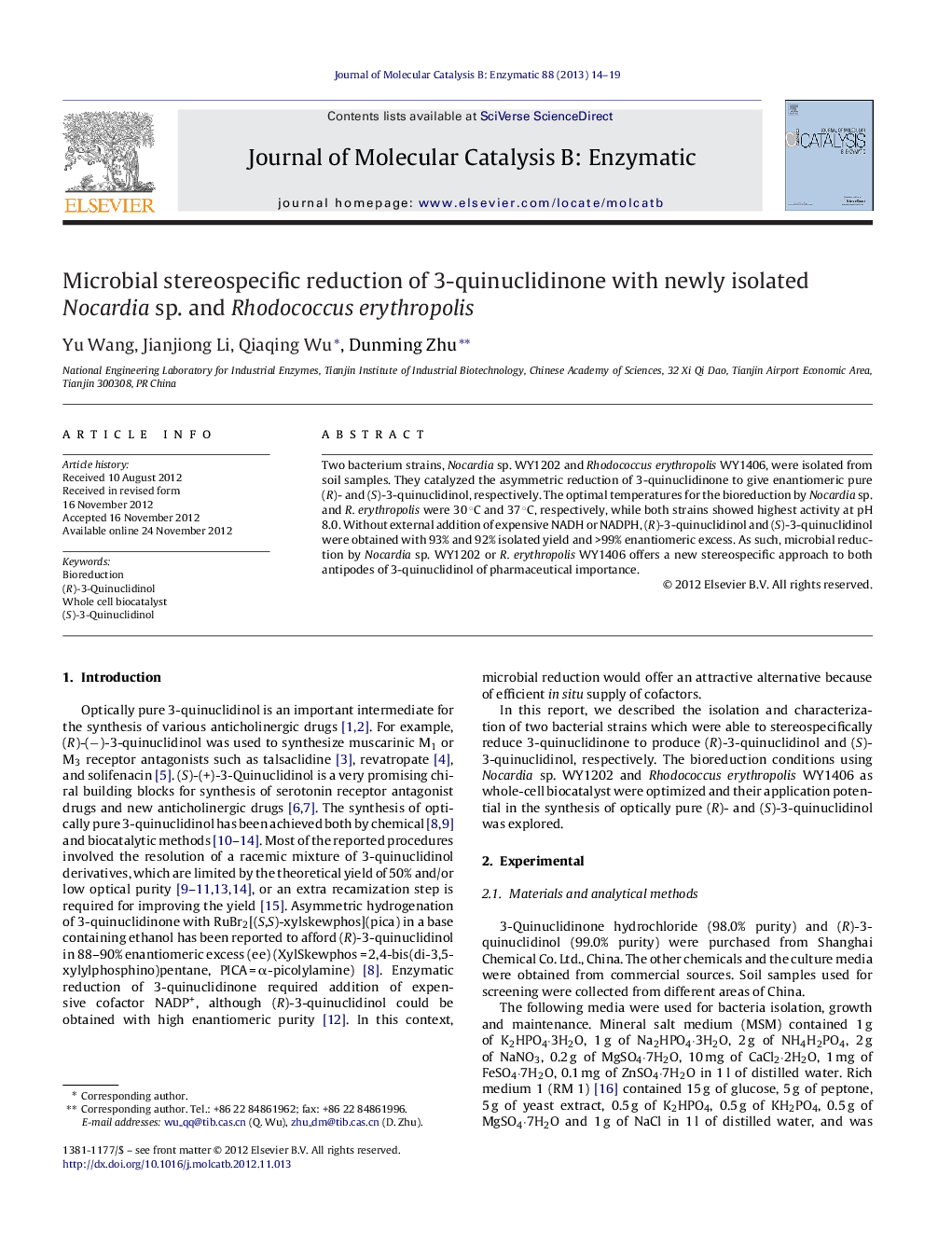| Article ID | Journal | Published Year | Pages | File Type |
|---|---|---|---|---|
| 70094 | Journal of Molecular Catalysis B: Enzymatic | 2013 | 6 Pages |
Two bacterium strains, Nocardia sp. WY1202 and Rhodococcus erythropolis WY1406, were isolated from soil samples. They catalyzed the asymmetric reduction of 3-quinuclidinone to give enantiomeric pure (R)- and (S)-3-quinuclidinol, respectively. The optimal temperatures for the bioreduction by Nocardia sp. and R. erythropolis were 30 °C and 37 °C, respectively, while both strains showed highest activity at pH 8.0. Without external addition of expensive NADH or NADPH, (R)-3-quinuclidinol and (S)-3-quinuclidinol were obtained with 93% and 92% isolated yield and >99% enantiomeric excess. As such, microbial reduction by Nocardia sp. WY1202 or R. erythropolis WY1406 offers a new stereospecific approach to both antipodes of 3-quinuclidinol of pharmaceutical importance.
Graphical abstractFigure optionsDownload full-size imageDownload as PowerPoint slideHighlights► Two bacterial strains, Nocardia sp. WY1202 and Rhodococcus erythropolis WY1406, were isolated. ► They catalyzed the enantioselective reduction of 3-quinuclidinone to give enantiomeric pure (R)- and (S)-3-quinuclidinol, respectively. ► Without external NADH or NADPH, (R)- and (S)-3-quinuclidinol (>99% ee) were obtained with 93% and 92% isolated yield, respectively. ► This study offers a new stereospecific approach to both antipodes of 3-quinuclidinol.
